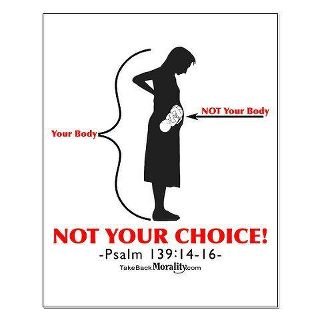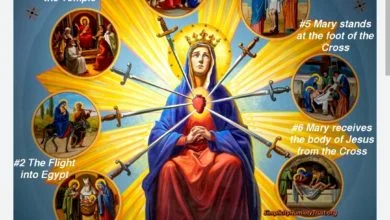Pope Francis Condemns Russian Invasion While Sharing Part Of Putin’s Fear Of American Globalism

As tensions between Russia and Ukraine have escalated to the point of war, the eyes of Catholics worldwide naturally turn toward their leader for his solemn guidance. On Friday the 25th of February, Pope Francis paid an unusual visit to the Russian Embassy in Rome, to speak in person with the Russian ambassador and voice his opposition to Putin’s invasion of Ukraine. It was one of a series of gestures which the Holy Father has made to oppose the “madness of war.”
Another such gesture was his call to all Catholics to join him in extra prayer and fasting on Ash Wednesday, for the intention of peace between Russia and Ukraine. By way of these gestures, Francis has made quite clear his position on Putin’s war, notwithstanding some commentators’ attempts to portray him as simply neutral on the question. Catholics who follow their pope must likewise condemn Putin’s invasion.
Yet there is a nuance to Pope Francis’ condemnation of Putin’s war and his view of Russia in general that risks going unnoticed in the present climate, which is so deeply polarized and ideological. It is impossible to understand Francis’ teaching on war outside the context of his broader opinion of global politics as a whole.
In this broader context, it is evident that the pope shares many of Putin’s concerns about international affairs, and thus wishes to position himself as sympathetic towards Russia even as he takes a strong position against war.
Throughout his papacy, Pope Francis has presented himself as a critic of American capitalism and the global system that it has created. During his apostolic visit to Bolivia, he made clear in guarded but unmistakable language that he regards the U.S. as the dominant power in a global system of economic exploitation and “ideological colonialism.”
He advocates for an alternate global system based on the Catholic principle of subsidiarity, where the individual cultures, traditions, and ways of life of lesser countries are not overwhelmed and exploited by the interests of a single, dominant superpower — a truly “multipolar” world:
“The world’s peoples want to be artisans of their own destiny. They want to advance peacefully towards justice. They do not want forms of tutelage or interference by which those with greater power subordinate those with less. They want their culture, their language, their social processes and their religious traditions to be respected.”
No actual or established power has the right to deprive peoples of the full exercise of their sovereignty. Whenever they do so, we see the rise of new forms of colonialism which seriously prejudice the possibility of peace and justice.
Similar critiques appear in Francis’ major papal writings, such as Evangelii Gaudium, Laudato Si and Fratelli Tutti. It is clear that, in his view, the international order is made in the image of America, a globalism “opened up” to the service of America’s one-sided economic interests and political interests.
There is a significant convergence between Francis’s criticism of American globalism and Putin’s own anxieties regarding American hegemony. Putin has often criticized the U.S.’s tendency to impose a one-dimensional framework upon the world, without reverence for local cultures and traditions or respect for local sovereignties.
In his own words, “We deem unacceptable the attempts of Western States to replace the universally recognized international legal principles with the so-called ‘rules-based world order’ elaborated behind the scenes.” On this score, Putin has publicly recognized the convergence between Pope Francis and himself on questions of international affairs, and The Economist has reported that Francis likewise acknowledges this convergence.
Pope Francis and Putin have also converged on their opinions of U.S. military expansionism. It is worthwhile to recall Putin’s vocal opposition to the U.S. invasion of Syria, which he expressed in an article at the New York Times just days after Pope Francis himself had written him a letter on the same issue. Putin observed that “the potential strike by the United States against Syria, despite strong opposition from many countries and major political and religious leaders, including the pope, will result in more innocent victims and escalation, potentially spreading the conflict far beyond Syria’s borders.”
He added, “It is alarming that military intervention in internal conflicts in foreign countries has become commonplace for the United States … millions around the world increasingly see America not as a model of democracy but as relying solely on brute force, cobbling coalitions together under the slogan ‘you’re either with us or against us.’” Doubtless, there is also implicit reference to NATO in this critique of the U.S.’ methods of “cobbling coalitions together.”
There can be no doubt, under the logic of Pope Francis’ well-known opposition to nuclear deterrence, that he would agree with Putin’s assessment of America’s aggressive method of international coalition-building. In 2017, the Holy Father addressed an audience that included members of NATO itself, effectively recognizing and condemning the centrality of nuclear deterrence to the maintenance of the American-made international order.
Needless to say, this criticism now openly applies to Putin as well, who has used nuclear deterrence to keep the West from intervening in Ukraine through military action.
Thus, following Pope Francis, it is possible to condemn Putin’s invasion while also maintaining that there is much legitimacy to Putin’s anxieties about American and Western globalism. Putin’s actions can only be understood in relation to the global U.S. war-machine, which is a regime with far greater ambitions for world-dominance than Russia has demonstrated.
That is, one does not need to support Russia in this conflict in order to recognize how shortsighted it is (not to mention hypocritical) to condemn Russian violence while ignoring the far more expansive military regime that has maintained U.S. global hegemony in the form of NATO.
Putin himself has often commented on this shortsightedness, protesting that the U.S. rules a vast global empire through the use of a military apparatus far more expansive (and expensive!) than his own. Putin by contrast advocates for a “multipolar” world, where the US will not impose its own ideological consensus, cultural values and socioeconomic system upon other nations in the name of a supposedly neutral ideal of “liberal democracy.”
Indeed, the military apparatus by which the U.S. has long imposed that ideology betrays its own commitment to neutrality, showing the U.S. to be the real tyrant on the world stage.
The U.S. functions as an imperial power, and practically the whole world is arranged on America’s terms. Its approach, as well as the approach of the various international institutions that effectively act as the U.S.’ imperial bureaucracy, should be to approach illiberal regimes like Russia diplomatically, with the intention of ensuring their survival and their thriving in a multipolar world.
It was always in the U.S.’ power to negotiate with countries like Russia to create a “multilateral framework ” of international relations, in which they need not be rigidly stuffed into the iron cage of Western and especially American liberal hegemony. As some scholars of international relations have argued, the fact that such an approach has not been taken puts some of the responsibility for the Ukraine crisis on the U.S. itself.
If we are to follow the guidance of the most eminent religious teacher in the world, then it is necessary to condemn the invasion of Ukraine on the same grounds on which the U.S. military regime and its many modern operations should be condemned. Putin appears to be failing the high standards to which he has rightly held the U.S. in the past.
But the response of the West should not be to use this aggression as pretext for the further expansion of its own hegemony through protracted war, an approach that could yield catastrophic results for the whole world. As the Holy See itself has suggested, the only solution is peaceful diplomacy and negotiation.
Jonathan Culbreath is a writer living in Southern California. His writing has appeared in publications such as The American Conservative, The Daily Caller, The Bellows, National Catholic Register, America Magazine and others. He is an assistant editor at The Josias, a website dedicated to the revival of Catholic political doctrine.
The views and opinions expressed in this commentary are those of the author and do not reflect the official position of the Daily Caller News Foundation.
Content created by The Daily Caller News Foundation is available without charge to any eligible news publisher that can provide a large audience. For licensing opportunities of our original content, please contact licensing@dailycallernewsfoundation.org
Agree/Disagree with the author(s)? Let them know in the comments below and be heard by 10’s of thousands of CDN readers each day!




